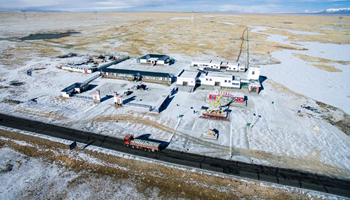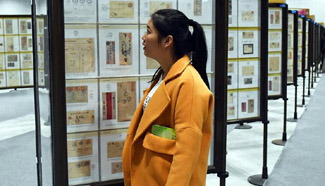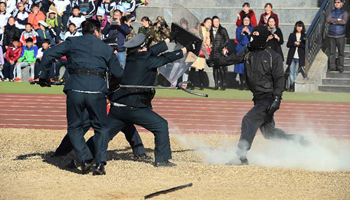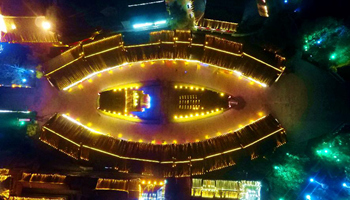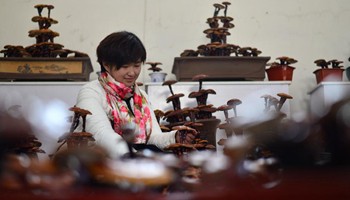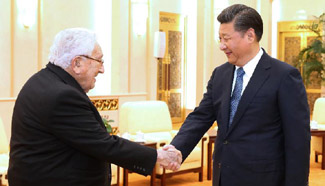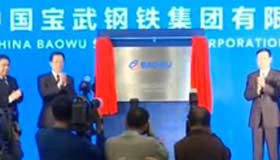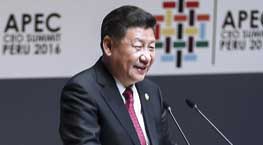BEIJING, Dec. 2 (Xinhua) -- Zhang Zhiquan is illiterate, but the old farmer knows exactly the right thing to do at each time of a year.
"Greater Snow, collect manure; Spring Equinox, fertilize the seeds; Grain Full, watch the worm..." The 78-year-old Zhang of Pingyu County in central China's Henan province has been relying on the 24 solar terms for farming for more than half a century.
Greater Snow, Spring Equinox and Grain Full are three of the 24 solar terms of the Chinese lunisolar calendar that has guided farming in China for thousands of years. This agricultural handbook was added Wednesday to the UNESCO list of Intangible Cultural Heritage of Humanity.
SHADOWS OF THE PAST
Believed to be China's fifth significant invention after the compass, gunpowder, paper and woodblock printing, the calendar was created by using astronomy, changes in temperature and precipitation as the basis.
The Yellow River Basin where Zhang lives was cradle of the system.
An observatory built in the Yuan Dynasty (1271 - 1368) still stands today in Dengfeng, Henan.
"Our ancestors measured the shadows at noon," said Yan Songtao, a cultural official in Dengfeng. "The shadows were short in summer and long in winter. In this way they divided the time equally into the solar terms."
For centuries, solar terms were vital for Chinese farmers, and at that time, almost everyone was a farmer.
"How can you be a farmer if you don't know the solar terms?" said Zhang Zhiquan. "When the cuckoo sings, we know it is the time of 'Grain in Ear,'" And sure enough, when the cuckoo does actually sing, Zhang heads for the fields with his hoe, and knows exactly what to do when he gets there.
The solar terms were adopted by ethnic groups across China and beyond. In central China's Hunan province, at "The Beginning of Autumn," people from the Miao ethnic group gather to celebrate with traditional dance. On the day of the Spring Equinox, a man called the "Spring Official" visits villagers door to door to remind them to start farming.
"Spring officials" during the Tang Dynasty (618 - 907) were appointed by the emperor. They carried a symbolic wooden ox with three burning incense sticks on its head. Today they are trained in a class, funded by the provincial government.
Other specific days of the solar terms are also celebrated in unique ways.
On the Winter Solstice, dumplings are served in north China. Wen Xiangui from Henan remembers how they made dumplings in college. "Each dormitory was provided with dough and stuffing," he recalled. His son is a senior student in the same college now and is following the same tradition.
"The shape of dumpling resembles an ear, and people believed that those who didn't eat dumplings on that day would have their ears frozen off by the biting cold," Wen said.
On the day of Grain Rain, farmers pick tea leaves. On the day of Greater Heat, people eat pineapple.
The day of Pure Brightness is also known as Tomb-Sweeping Day, when millions visit the grave of their ancestors and pay homage.
THE CALENDAR OF THE FUTURE?
Almost everyone in China knows the poem of the solar terms, and although the customs are no longer strictly followed in China, the tradition spread to Korea, Vietnam, Japan and other East Asian countries.
The pronunciation of the terms in Korean and Japanese is very similar to their Chinese names. For example, Li Chun (The Beginning of Spring) is Ipchun in Korean and Risshun in Japanese.
"The solar terms are significant in astronomy, farming and folk culture," Yan Songtao said. "They affect the lives of almost everyone."
In a modern industrial setting however, solar terms have lost some of their importance.
"With technology and climate change, people can no longer rely on a weather forecast from the calendar," Yan said. "Western culture has also encroached on tradition. With more Western holidays to celebrate, people tend to ignore traditional holidays."
Yan believes inclusion in the UNESCO list a good opportunity for people to pay more attention to a dying legacy, a view shared by writer, artist and calligrapher Feng Jicai.
"We need specific measures to preserve our culture," he said.
Chen Lun is founder of a company that spent almost a year designing and producing a calendar of solar terms.
"We would like it to be a guide," he said. "Solar terms embody centuries of wisdom and can still guide us in what to do and what to eat in different seasons."
They began selling the calendar online on August 15 and more than 100,000 copies have been sold.
Yang Chao, marketing manager of the Hundred Create Culture company told Xinhua they are developing other products based on solar terms. "As people get richer, they are more interested in keeping healthy. We are considering how to combine solar terms with healthy food and folk activities."
The next solar term, the Greater Snow, begins next Tuesday. Zhang Zhiquan is preparing to loosen the soil to preserve its moisture. "After that, I will be waiting for the snow," he smiled. "A big snow always promises a good harvest."

